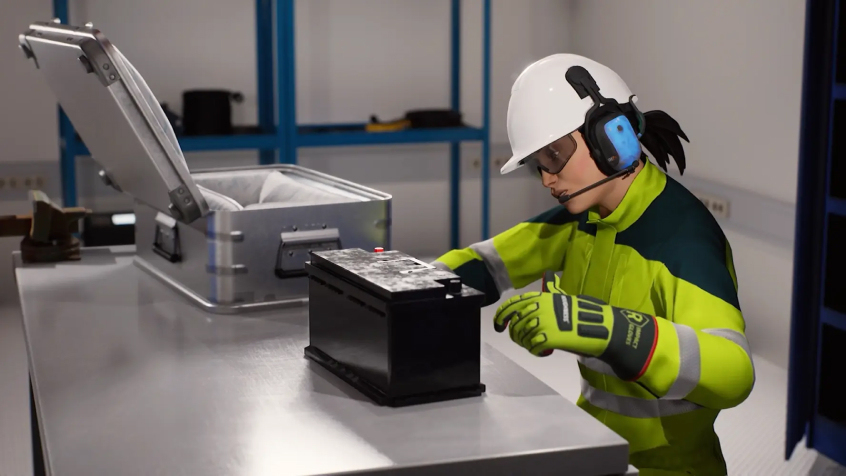to access your courses, safety cards and other features.

Are you responsible for maintaining batteries and battery systems on land or at sea, whether regularly or occasionally? With the right training in battery technology and safety, you can prevent hazards and reduce potential risks.


In our courses, you'll learn how to safely use, store, and maintain different types of batteries, combining both theoretical knowledge and hands-on practice. You'll gain the skills to identify and mitigate risks like gas leaks and explosions, while following essential safety protocols. The aim is to equip you to handle safety challenges related to battery systems, and provide up-to-date knowledge on regulations, cutting-edge safety technologies, and best practices for emergency management.
In our courses, you'll learn how to safely use, store, and maintain different types of batteries, combining both theoretical knowledge and hands-on practice. You'll gain the skills to identify and mitigate risks like gas leaks and explosions, while following essential safety protocols. The aim is to equip you to handle safety challenges related to battery systems, and provide up-to-date knowledge on regulations, cutting-edge safety technologies, and best practices for emergency management.
Trainor's battery courses are designed for anyone responsible for the maintenance and safety of batteries and battery systems. This includes roles ranging from electrical managers in heavy industry to facility maintenance staff, public building employees, defense personnel, and those in the transportation sector. We also offer customized training for emergency response teams, electrical professionals, and maritime personnel working with battery systems on seagoing vessels. Additionally, our courses are suited for those involved in risk assessment and crisis management.

Trainor's battery courses are designed for anyone responsible for the maintenance and safety of batteries and battery systems. This includes roles ranging from electrical managers in heavy industry to facility maintenance staff, public building employees, defense personnel, and those in the transportation sector. We also offer customized training for emergency response teams, electrical professionals, and maritime personnel working with battery systems on seagoing vessels. Additionally, our courses are suited for those involved in risk assessment and crisis management.
Learn basic theory about batteries and the various battery systems, and increase your knowledge of the risks involved in the inspection and operation of various battery systems.
Learn the basic theory about Lithium-Ion batteries and monitoring systems. The course enhances the emergency personnel's ability to respond effectively to potential risks and provides electrical personnel with the necessary theoretical competence on Lithium-Ion batteries onboard ships.
Practical and theoretical training in operation and maintenance of batteries.
Practical and theoretical training in operation and maintenance of batteries onboard ships. The course satisfies the Norwegian Maritime Directorate's training requirements.


C-rate indicates how quickly a battery can be charged or discharged in relation to its capacity.
At low temperatures, the chemical reactions inside the battery slow down, reducing its ability to deliver power. Additionally, the resistance in the battery increases, meaning more energy is required to make the electrons flow.
AGM (Absorbed Glass Mat)-batteries have several advantages compared to traditional lead-acid batteries:
Thermal runaway is a dangerous situation where a battery overheats uncontrollably. This occurs when a cell in the battery becomes too hot, either due to overcharging, a short circuit, or physical damage. The high heat can cause the electrolyte in the battery to break down and release more heat, potentially triggering a chain reaction in other cells within the battery. The result can be a rapid increase in temperature, gas leakage, fire, or explosion. This is particularly hazardous in lithium-ion batteries, which have high energy density.

If you have any questions, please reach out to us for assistance.



